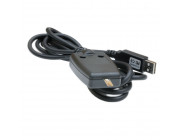


While monitoring numerous inputs the PCM can make rapid and immediate adjustments if any reading is out of range. The processing power of the PCM (or similar control unit above) allows for the control of a host of interlinked sub-systems in the vehicle providing optimal gear shift, engine performance, timing and fuel efficiency. So, the difference is that a 'PCM' controls both the engine and transmission system, whereas an 'ECU/ECM' or 'TCM' controls only one of these systems. All auto, semi-auto and dual clutch manual transmissions have a TCU/TCM. TCU (Transmission Control Unit) / TCM (Transmission Control Module) – This is a control unit that manages the transmission and associated sensors, switches, actuators and solenoids. Encompassing associated sensors, actuators, fuel injection, ignition and ancillaries of the engine. PCM (Powertrain Control Module) – This is a combined engine and transmission control unit which will provide management and correct function of the engine and transmission from one control unit.ĮCU (Engine Control Unit) / ECM (Engine Control Module) – This is an electronic control unit that manages the engine only. Very plainly put, electronic control units that control the engine and/or transmission systems can be defined as follows:

However, there are certainly differences between these electronic modules and the function that they provide on the vehicle. The terms PCM (Powertrain Control Module), ECU (Engine Control Unit) and ECM (Engine Control Module) can sometimes be used as interchangeable generic phrases for the same thing - a control unit for the engine/transmission system.ĭepending on who is speaking will often depend on which term is used: manufacturers, vehicle sales, mechanics, auto-technicians, electronic engineers and the general public each will often call the same thing by a different name.


 0 kommentar(er)
0 kommentar(er)
